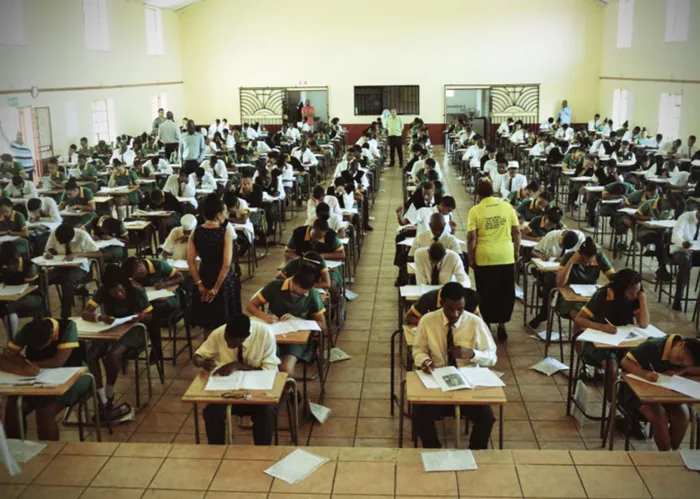Teachers' unions have high hopes for matrics

File picture: Timothy Bernard/Independent Media File picture: Timothy Bernard/Independent Media
Durban – Two of the teacher unions in KwaZulu-Natal have high hopes that this year’s matric pass rate would increase and restore the province’s dignity.
But a third union believed a good pass rate was not possible.
Allen Thompson, the National Teachers Union (Natu’s) deputy president, said the results would “definitely improve” from the “dismally poor performance” of 2015 with a 60.7% pass rate. KZN was the third-worst-performing province in the country after its results collapsed by almost 10%.
“As much as we predict that the results will improve, we are far from reaching the standard of the best-performing provinces (Gauteng and the Western Cape). Our teachers did everything they could. If there are any disappointments, then blame shouldn’t be directed at teachers.”
With less than six days before the official release of the results, Thompson said the hard work invested by teachers through various programmes would pay off.
He said the teachers taught after school hours and during winter and spring holidays to get pupils ready for the exams and did this from the goodness of their hearts without any remuneration.
While the programmes were targeted at all schools in the province, Thompson said special focus was put on schools that did not perform well last year.
“Our hopes are also raised by the fact that there were no disruptions during the year. Our teachers had enough time to teach and conducted adequate revision of the work done throughout the year.”
But he said KZN would not reach its full potential because of overcrowding and a shortage of teachers.
He said Natu had recently raised the issue of teacher shortages with the provincial department of education referring to KZN schools operating with the same number of teachers since 2009.
“The department should fill the vacant teacher posts to avoid the overcrowding of pupils. The problem of teachers in temporary posts contributes to a lot of teachers applying for transfers all the time in search of permanent employment.”
Should the department address these issues, the province’s results would improve.
Nomarashiya Caluza, the South African Democratic Teachers Union’s (Sadtu) provincial secretary, said the union had no doubt that the extra contribution by teachers would be evident in the increased pass rate.
“Our bounce-back programmes were implemented and included the camps we hosted over the September holidays. Teachers did everything they could,” she said.
Caluza said the deployment, two years ago, of subject advisors to all schools would also have a positive contribution to this year’s matric results.
However, Anthony Pierce of the National Professional Teachers Organisation of South Africa (Naptosa), said that while they had not received the official results as yet, events throughout the year have indicated that a good pass rate (double digits) was not possible.
“Given the poor performance in 2015 expectations are not high. Two crucial subjects, maths and science, have not been up to expectations. There has been an absence of teachers in this field to improve or have an impact on these results. The structures and administration also have an impact on results,” Pierce said.
The largest number of candidates who wrote the 2016 National Senior Certificate (NSC) exams came from KwaZulu-Natal with 170 631 registered candidates, followed by Gauteng and Limpopo. The three provinces accounted for 54% of the candidates and contributed largely to whether the pass rate would drop or increase.
This year, the national Department of Basic Education said a total of 677141 full-time and 150183 part-time candidates had registered for the NSC exams.
The Independent Examinations Board matric results are expected to be released at midnight today. The government schools matric results will be released on January 5. – Additional reporting by Zainul Dawood.